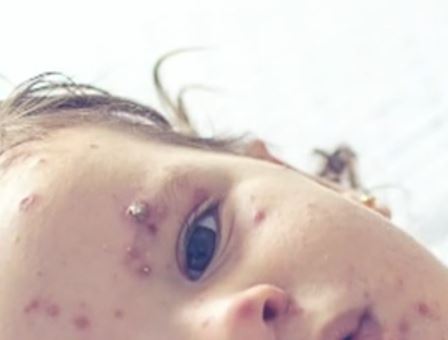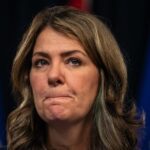As I step into the immunization clinic at Calgary’s South Health Campus, the waiting room is noticeably fuller than normal. Parents clutch their children’s health records while scrolling anxiously through news alerts on their phones. A toddler in a dinosaur shirt squirms on his mother’s lap, unaware of the public health emergency unfolding across the province.
“We’ve been turning people away,” whispers Sara Khaled, a public health nurse who’s worked here for eight years. “We’re prioritizing the highest-risk exposures and trying to accommodate everyone else as quickly as we can.”
This scene has become increasingly common across Alberta since health officials confirmed 14 new measles cases over the weekend, bringing the provincial total to 23 cases so far in 2024. The sudden spike represents the largest measles outbreak Alberta has experienced in more than a decade.
“What makes this particularly concerning is how quickly it’s spreading,” explains Dr. Mark Joffe, Alberta’s Chief Medical Officer of Health, during our phone interview. “We’ve gone from isolated cases to community transmission in under three weeks.”
The latest data from Alberta Health Services shows the outbreak has now reached four health zones, with the majority of cases concentrated in Edmonton and Calgary. More troubling still, nearly 70% of those infected are children under 10 years old, and almost all were unvaccinated or had unknown vaccination status.
According to the Public Health Agency of Canada, measles is one of the most contagious viruses known to medicine. A single infected person can spread the disease to 12-18 others in an unprotected population. Complications can include pneumonia, encephalitis, and in rare cases, death.
Walking through the Riverside neighborhood in Edmonton, I meet Aisha Chadha, whose 6-year-old daughter attends an elementary school where exposure was recently confirmed. “I thought this disease was basically eliminated in Canada,” she says, adjusting her mask. “Now I’m getting exposure notifications and watching for symptoms while trying not to panic.”
Chadha’s concerns reflect a reality many Canadians have forgotten. Measles was declared eliminated in Canada in 1998, meaning there was no continuous transmission within our borders. Cases since then have typically been travel-related. But declining vaccination rates have created vulnerabilities.
Provincial immunization records show MMR (measles, mumps, rubella) vaccination rates have dropped below 85% in some Alberta communities—far short of the 95% needed for herd immunity. The COVID-19 pandemic exacerbated this trend, with routine childhood immunization appointments missed or delayed.
At the Boyle Street Community Services center in Edmonton, outreach worker Miguel Torres is trying to connect vulnerable populations with vaccination services. “Many of the people we serve don’t have easy access to healthcare or may not understand the risks,” he explains. “We’re seeing how public health emergencies always hit marginalized communities hardest.”
Inside the center, staff have set up an information table with multilingual pamphlets explaining measles symptoms and prevention. Torres tells me they’re working with Alberta Health Services to potentially host a mobile vaccination clinic in the coming weeks.
The current outbreak has reignited debates about vaccination policies. Alberta, unlike some provinces, does not require proof of immunization for school entry. When I ask Dr. Joffe if policy changes might be considered, his response is measured.
“Our immediate focus is on containing this outbreak and protecting vulnerable Albertans,” he says. “But yes, we’re continually evaluating our approach to vaccine-preventable diseases and what strategies best serve public health.”
Back in Calgary, I visit Bow Valley College where nursing students are conducting a vaccine information campaign. Second-year student Naomi Cheung explains they’re combating misinformation as much as the virus itself.
“We’ve had people come up and ask if the measles vaccine causes autism—a thoroughly debunked claim,” Cheung says. “Addressing these myths directly, with compassion rather than judgment, is essential.”
The Alberta outbreak comes amid rising measles cases globally. The World Health Organization and UNICEF reported a 79% increase in measles cases worldwide in 2023, with over 9 million cases and 136,000 deaths—mostly children.
For parents like Michael Dumont, whose 8-month-old son is too young to receive the MMR vaccine (typically given at 12 months), the outbreak has meant drastically changing daily routines.
“We’ve basically gone back to pandemic mode,” Dumont tells me as we talk outside his Airdrie home. “No mall trips, no indoor playgrounds. My wife had to take emergency leave from work because we can’t risk daycare right now.”
Alberta Health Services has expanded clinic hours and staffing to meet increased demand for vaccination. They’ve also established a dedicated measles hotline to answer questions and direct high-risk individuals to appropriate care.
Dr. Deena Hinshaw, former Chief Medical Officer of Health for Alberta who now works with the University of Alberta’s School of Public Health, offers some historical perspective when I reach her by phone.
“What we’re seeing is the consequence of taking our eye off preventative public health,” Hinshaw explains. “After COVID, there’s been understandable fatigue around public health measures, but vaccine-preventable diseases don’t disappear just because we’re tired of thinking about them.”
As evening falls, I join a community forum at the Terwillegar Recreation Centre in southwest Edmonton. About sixty residents have gathered to hear from public health officials and ask questions. The atmosphere is tense but civil.
One woman stands to share that her child is immunocompromised due to cancer treatment. “How do I protect him when others aren’t vaccinating their kids?” she asks, voice breaking slightly. The room falls silent.
It’s a question that echoes across the province as Albertans face a disease many thought was relegated to history books. For now, public health officials continue urging vaccination while monitoring case counts that show no immediate signs of slowing.
As I leave the forum, a light snow has begun to fall. Parents huddle together in small groups in the parking lot, still talking. Their breath visible in the cold air, they discuss playdate cancellations, school attendance policies, and clinic wait times—the new reality of parenting during an outbreak of a once-forgotten disease.






